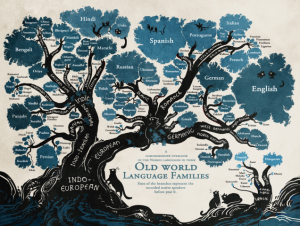Re Ian Bremmer 'Could third-party candidates upend the 2024 US election?' 3 April The current political movement in the USA…
Wednesday Night #1714 with Peter Berezin
Written by Diana Thebaud Nicholson // January 6, 2015 // Wednesday Nights // Comments Off on Wednesday Night #1714 with Peter Berezin
May the New Year – whether 2015, or the 4712th Chinese year (Year of The Goat), or Anno Mundi AM 5775 – be filled with comfort and joy, peace of mind, good health, happy surprises, the warmth of friendship and the sustaining power of love.
We open Wednesday Nights of 2015 with what is always a crowd pleaser – Peter Berezin and the December 2014 Bank Credit Analyst: Is Secular Stagnation A Supply-Side Or A Demand-Side Problem?
The upside for U.S. equities is limited, while concerns about another debt crisis will continue to plague euro area stocks. Overweight Japan and China. The Special Report argues that slow growth in most countries has historically been the result of supply-side constraints. However, in much of the developed world, the main problem today is weak demand. Investors should expect interest rates in safe haven markets to stay low for years to come.
Brett House kindly contributes 38 maps that explain the global economy to stimulate the debate
 Bring your crystal balls as we plan to take a good look at Year-end musings and predictions for 2015 – our far-from-exhaustive compilation, among which are two intriguing – and lengthy – offerings:
Bring your crystal balls as we plan to take a good look at Year-end musings and predictions for 2015 – our far-from-exhaustive compilation, among which are two intriguing – and lengthy – offerings:
What U.S. Intelligence Predicted the World Would Look Like in 2015. Nine months before the September 11 attacks, U.S. intelligence officials published an 85-page prediction for what the world would look like in 2015; and
the CSIS (Centre for Strategic and International Studies)) Global Forecast 2015
Here is a provocative item: What If the Norwegian Oil Economy Is a Bubble?
The Norwegian oil economy needs high oil prices. In this respect, Norway shares interests similar to those of other oil-producing nations. And Norwegian energy ministers are, for example, regular visitors to Saudi Arabia. This dependency on oil exports for wealth creation can result in limited investments in alternative energy sources (although Norway is lucky to be blessed with extensive hydro energy sources, investment in other renewable energy options remains relatively low). Here’s how the Norwegian PM addresses the issue: The Prime Minister’s New Year speech
And if you really, really, want to be depressed (Thank you, John Evdokias), check out Bloomberg Graphics – A Pessimist’s Guide to the World in 2015 – Global Hot Spots
Skirmishes in the South China Sea lead to full-scale naval confrontation. Israel bombs Iran, setting off an escalation of violence across the Middle East. Nigeria crumbles as oil prices fall and radicals gain strength. Bloomberg News asked foreign policy analysts, military experts, economists and investors to identify the possible worst-case scenarios, based on current global conflicts, that concern them most heading into 2015.
Two Wednesday Nighters have already put forward their own thoughts: The always entertaining dialogue between the Two Davids (Jones and Kilgour) addresses The world in 2015. David Jones’ Entering the new year in peace and prosperity sounds an optimistic tone, while David Kilgour foresees Tough times are ahead for all citizens
David Kilgour added this Postscript to his Facebook page:
My column about four major issues in 2015 has now evoked 248 responses on Yahoo. What is fascinating is that 176 of them agree with one comment, which reads: “Most problems in the world are a result of a few trying to control and suppress the majority. The USA and Canada thrived when Democracy meant the Gov’t answered to the people and not to lobbyists and big business. Unfortunately the days and freedoms of our parents and grandparents are behind us. We’re becoming the same as the countries we use to think were despicable for the influence and bribery that took place. Now it’s legal through lobbyists and Brain washing advertisements that include misrepresentation of truths.” I think that says something really important and hope elected Canadians and others are listening. AMEN!
We also highly recommend the latest edition of OpenCanada, especially:
OpenCanada’s Best of 2014 – 12 must-read pieces from the past year and
2014 in Foreign Policy: Six books for every student’s list (and that includes you). And don’t miss Kyle Matthews’: When education becomes a terrorist target
In the wake of the school attack in Peshawar, Pakistan, global cooperation is needed to protect schools and students
Just when we thought that Thomas Piketty‘s 15 minutes of fame might be over after the bombardment of articles and critiques (favorable and not) in early 2014, lo! This week he has surfaced again. Seems he has declined his nomination to the Legion d’honneur saying he doesn’t think it’s the role of government “to decide who is honourable,” and that the President would do better to focus himself on restoring the beleaguered economies of France and Europe. (Le grand snub de Thomas Piketty). And, the HuffPost reports Piketty said Saturday at a conference in Boston that Microsoft co-founder Bill Gates recently told the economics professor that he didn’t want to pay more in taxes, as Gates believes he can spend his money in “more efficient [ways] than the government.”
Random items of interest
The hallway lead to a cave-like room which lead to more hallways and cave-like rooms. Before he knew it he had stumbled onto an entire city underground and attached to his home. The city was completely empty and abandoned but it had every amenity you would need to sustain a society. What he had stumbled on by accident was Derinkuyu and The underground cities of Cappadocia Read more about this incredible find
An encouraging trend in architecture?
Architects’ vision of London takes inspiration from 19th-century Paris
Quinlan and Francis Terry are spearheading a fight against the wave of skyscraper construction in London, beginning with a classically inspired design for the site of Hyde Park barracks
Eschewing computer power for sharp pencils and tracing paper, father and son architect team Quinlan and Francis Terry are drafting classically inspired designs for some of the capital’s most prominent sites in a fightback against plans for hundreds of new skyscrapers.
Sam Stein comments: if you want to see some cityscapes with a somewhat similar inspiration, just visit Washington DC. As you well know, the building by-laws – especially regarding height – are very strict and well-enforced there. And in the past 20 years or so, many of the new government, commercial and residential buildings (at least in the city center) have been built in what I call neo-retro style, complete with classically-inspired columns, pilasters, pediments, porticos and the like. Together with the wide sidewalks, Hausmannesque boulevards and excellent metro system, it makes for a very pleasant urban environment – and that’s in addition to all the parks, monuments, landmarks and museums. Glad to see that some new/old ideas are being considered for London.
 This Linguistic Family Tree Is Simply Gorgeous
This Linguistic Family Tree Is Simply Gorgeous
We’ve praised the work of Minna Sundberg before, and here, as part of her Stand Still. Stay Silent webcomic, she’s illustrated the family trees of Indo-European and Uralic languages.
Sundberg explains what’s missing and where the data came from:
Language trees for the language lovers! I’ve gathered pretty much all the data for this from ethnologue.com, which is an awesome well of information about language families. And if anyone finds some important language missing let me know! (Naturally most tiny languages didn’t make it on the graph, aww. There’s literally hundreds of them in the Indo-European family alone and I could only fit so many on this page, so most sub-1 mil. speaker languages that don’t have official status somewhere got the cut.)


